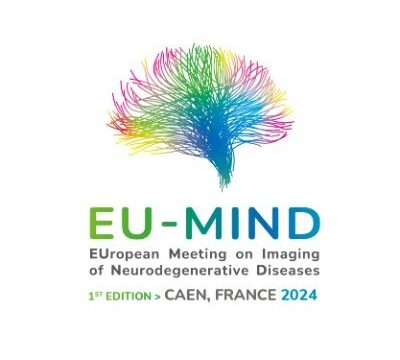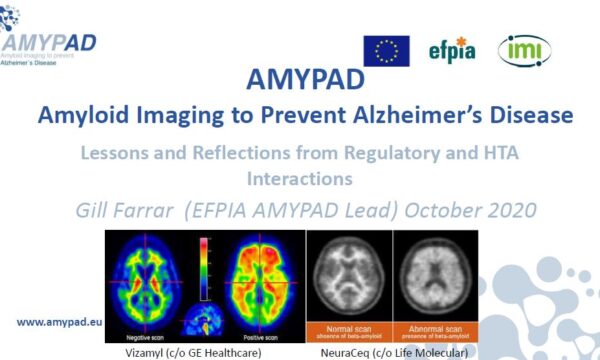What is your current role on AMYPAD?
I joined the AMYPAD project in February 2020 as a research assistant at the University of Geneva, as part of Prof. Giovanni Frisoni’s team. I am currently in charge of the quality management of the data collected in the Diagnostic and Patient Management Study (DPMS), which has selected and followed-up a memory clinic population to determine the usefulness of β-amyloid imaging with regards to diagnostic confidence, decision trees, change in diagnosis and treatment plan. Besides, I’m also carrying on the Add-On study concerning the impact of the disclosure of amyloid-PET results to patients with subjective cognitive decline and I collaborate in the cost-effectiveness evaluation of Amyloid-PET.
What is your overall vision?
Even if the use of amyloid-PET in clinical practice keeps growing, definitive real-world evidence on its clinical utility and cost-effectiveness is still lacking. The AMYPAD project has addressed these shortcomings to allow the reimbursement of this exam by healthcare payers, hence leading the research efforts toward the stable implementation of β-amyloid imaging in clinical practice and contributing to Alzheimer’s disease prevention worldwide.
Thus, I really hope that this project will have a decisive impact on the well-being and management of many patients with Alzheimer’s disease.
What do you find most challenging about the project?
The multicentric nature of AMYPAD carries along incomparable opportunities but also tough challenges, indeed different realities and perspective needs to be recognized and connected. As for data quality management, this implies creating clear guidelines for data entry and quality, which can be understood and applied by professional working in different centers scattered throughout Europe but also support them across all quality check steps required to ensure solid and reliable data to be analyzed, integrated and disseminated.



